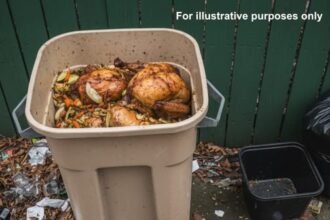Innocent people bristle sometimes, but not like that, not with practiced offense. “Everything’s fine, Becca. Not everyone cross‑examines their own life.”
I let it go.
You can love a person and still suspect their math. What you cannot do is unhear a sentence. At a summer barbecue in the new Scottsdale house—the one with a kitchen island big enough to land a drone—Marcus took a phone call in the office next to the guest bath.
The door was open enough to make a confession of acoustics. “The investors are asking questions I can’t answer,” he whispered. “We need to move funds before the audit.
Stall them. By the time they figure out the Phoenix project doesn’t exist, the Miami deal will cover it.”
Exist is a harmless verb until it sits next to audit; then it turns into a charge. Then it becomes an indictment.
Securities fraud. Wire fraud. Money laundering.
My mind did what it had been trained to do: follow the money, map the lies, predict the fall. At dusk, saguaro cut the sky into dark punctuation and we walked. “Marcus,” I said, keeping my voice in the key of sister, “what you described is federal crime.
Stop. Hire counsel. Consider voluntary disclosure before it gets worse.”
He laughed, brittle as spun sugar.
“Turn myself in? Destroy my family because you heard a sentence?” He found the tender spot with a surgeon’s certainty. “Maybe if you had a family of your own, you’d understand.”
We went back to the house—his version in his pocket, mine in my throat—and I flew to Washington and tried to believe I’d misheard.
I had not. Public filings are polite until you read them like a detective. Property records, permit databases, shells inside shells—Delaware in Nevada in a Cayman P.O.
box. Timelines that bloomed on paper and withered in dirt. I told myself I was only checking to calm my mind.
I was building a case I didn’t want to carry. In Las Vegas, outside a panel on crypto tracing, FBI Special Agent Sarah Mitchell found me. We’d tried cases together and lost sleep on adjacent deadlines.
“We’re looking at a Phoenix developer,” she said, tone careful. “Marcus Chen. Any relation?”
I could have lied for comfort.
I told the truth for later. “He’s my brother.” She nodded, sympathy edged with steel. “Then you know what you have to do.
Recuse. If you can get him to stop, do it now.”
I called Marcus. “I need to see you.”
“Easter,” he said after a long pause.
“We’ll all be at Mom and Dad’s.”
“Don’t wait,” I said. “This is time‑sensitive.” He wanted details. I gave him enough to save him if he chose: investigation, subpoenas, the shape of what was coming.
The line went quiet. Panic makes a certain kind of static. “You told them I’m your brother?” he asked.
“I told them the truth,” I said. “Don’t move money. Don’t shred.
Get a lawyer.”
Sarah called weeks later. “He moved money,” she said. “He shredded.
Someone tipped him.” Me. I had tried to hand my brother a lifeline and he had used it to lash the boat tighter to the rock. I hired my own counsel—David Reeves—and built a wall between my work and my blood.
I retained a licensed private investigator to document Marcus’s activities—not to feed the Bureau, but to protect myself from appearances and to keep a record of the truth in case he tried to make me the author of his alibis. The reports were bleak: new shells spawning like algae; Cayman accounts opening like mouths; staged progress photos; “investor updates” that shifted figures like sand. Worst: glossy brochures now name‑dropping a “respected federal prosecutor” in the family.
He’d weaponized my reputation. Easter came anyway, smelling like sesame oil and ham glaze, a hybrid holiday my mother perfected to make grandsons love pot stickers and sweet potatoes equally. Diane wore a cherry‑print skirt and took pictures of everything.
Marcus arrived in a blazer the color of old money; Jennifer’s diamonds scattered light like a defense. The twins towered over my father and pretended not to watch the adults for what to feel. We ate.
We complimented. We avoided. Then I asked Marcus to step outside.
“Not today,” he said lightly, checking his phone. “Family time.”
“It can’t wait,” I said, and turned to the room. When you love people, you don’t let the house burn because the candles look pretty.
I told them. Charges. Dollar amounts.
Asset forfeiture. Jennifer said “misunderstanding” like a threat. Marcus called me jealous, a prosecutor who’d forgotten how to be a sister.
My father looked at me with a sadness that was older than language. “How can you do this to your brother?” he asked. “We are family.”
“I’m trying to save what I can,” I said.
“Cooperate now; see your boys graduate. Keep going; prison decides your calendar.”
“We’re adults,” Marcus said. “We don’t need your advice.”
I left before my mother could ask me to stay and undo me.
Back in Washington, I did the thing I could live with: I recused formally, cooperated fully, and told the truth on paper with an immunity agreement drawn in lines so narrow a dishonest word would not fit. The morning the arrests came was gray and damp. On television my brother was any man in handcuffs until my throat forgot how to swallow.
The ticker said twelve million, not eight. Fraud, when squeezed, doesn’t bleed—it blooms. This is the part no one ever asks for: the aftermath.
My parents froze me out with the efficiency of ice. Diane’s sunshine dulled to polite cloud cover. Jennifer’s attorney sent letters threatening a restraining order if I approached the boys.
Colleagues called me brave because it is easier to praise from a distance than to sit with grief. I kept working until my boss, District Attorney Katherine Rodriguez, called me in and spoke like a friend who still uses titles. “You did your duty,” she said.
“Now take care of yourself.” I took leave. I found a therapist, Dr. Sarah Williamson, who asked me to explain not my legal reasoning but my human one.
“Did you choose strangers over family?” she asked. “Or did your brother choose a crime that forced you to choose?”
I left the U.S. Attorney’s Office a year later and opened the Chen Foundation for Financial Crime Victims in Phoenix because the crater was here.
We rented two suites in a low‑rise that smelled like copier toner and citrus‑scented hand soap. We bought coffee makers that did not burn. We hired counselors who knew how to talk to people whose retirement had evaporated and paralegals who printed forms in fourteen‑point type.
On Tuesdays we taught “How to Read a Prospectus Without Falling Asleep”—and meant it. The first woman who sat in my office, hands folded over a thrift‑store purse, was seventy‑three. Eleanor Patterson had lost $40,000 to a guaranteed‑returns real‑estate scheme.
“I should have known,” she said. “I’m not stupid.” “You’re not,” I said, and meant it. “Trust is what makes towns work.
Predators make trust look foolish. That’s the con.” We found emergency funds, applied for aid, built a plan. Mrs.
Patterson planted tomatoes in a styrofoam cooler and marched in with the first one like a medal: proof that slow care works. Time did what time does when you use it. Tyler called, then Nathan, teenagers trying to understand adult decisions with adult consequences.
“Did you destroy our family?” Tyler asked. “I tried to keep other families from being destroyed,” I said. “Both can hurt.” He asked if his father was a bad man.
“He loved you,” I said. “He also stole. Humans are a both/and machine; courtrooms are a yes/no box.”
Four years into Marcus’s sentence, he asked to see me.
I went because saying no would not make any version of me proud. The visiting room smelled like disinfectant and coffee. He had traded arrogance for a kind of quiet I trusted.
“You did the right thing,” he said before I could decide whether to sit. I cried in the car and then slept without waking at every siren. If this were only a story of crime and punishment, we could close here with a moral stapled on.
But repair takes longer and teaches more. It took Jennifer collapsing into a medical crisis for us to find the border between pride and survival. She’d been having chest pains and skipping doctors because deductibles shame people into gambling.
The foundation built a medical hardship program for single mothers in crisis—real paperwork, real criteria—and she qualified like anyone else. The tests found a congenital heart defect. The surgery was expensive in a way that has nothing to do with morality.
Nathan set a dinner at his apartment. I brought photo albums from the foundation because numbers don’t make a case to the human heart. Jennifer asked why.
“Because I know what it is to have your life broken by someone else’s crime,” I said. “Because helping strangers is how I repair myself. Because you’re the boys’ mother.” Tyler told her about the grant.
She stood, paced, cried, sat, and asked the question pride asks when it is tired: “If I accept your help, what does that mean?” “It means you live,” I said. We paid for the surgery through channels that left her credit intact and her dignity standing. She recovered, color returning to her face like sunrise over stucco.
Months later she called to volunteer. “I was a victim, too,” she said, “even if the money bought my ceiling fans.” She now runs our family support circle like a lighthouse keeper—steady, bright, unafraid of storms. Marcus came home after eleven years.
We gave him a desk and a supervisor who once audited him for sport. He teaches “The Boring Miracle of Budgets” and tells men inside and outside that money is a mirror, not a verdict. My parents thawed in public first—at banquets where applause softened the parts they couldn’t forgive—and then in private in the form of sesame cookies left on my porch and a basil plant my father insisted needed more sun.
Two years after the storefront opened, a lawyer called with a bequest that sounded like a misdialed prayer. Harold “Hal” Whitcomb, a private‑equity titan who had waited tables at my parents’ Denver restaurant while finishing night classes, had died. Delgado slid a cream envelope across the desk with both hands, like a server setting down a hot plate.
The office smelled faintly of lemon oil and old law books. He left a letter in tidy script: “Ms. Chen—your mother once sent me home with soup after a double.
I’ve tried to repay that bowl for forty years.” He wrote about my mother correcting his grip on a tray—elbow tucked, dignity first—and my father telling him, “Dignity isn’t a refill,” the night a man with a gold watch waved him off. He wrote about an early partner who cooked the books and the decision to turn him in before the rot became a business model; he paid with a friendship and was repaid, ruinously, with success. “Your stand for the honest reminded me of the choice I made,” he wrote.
“This is not a reward. It is a tool. Use it to fix what money breaks.
Money is a flood—canal it, don’t surf it.” A pressed sprig—rosemary, maybe—fell from the last page and landed like a small green exclamation. Attached were documents: a portfolio of simple, sturdy assets and liquid funds structured to land—with constraints—in my hands. Four hundred and fifty million dollars, post‑tax, with a default gift to the foundation if I refused.
Money that size is weather—new climate, new storms, same map if you’re careful. I hired David to be my umbrella and a security team to be the men who build trenches. For a week I told no one but my counsel.
Then I invited Marcus, Diane, and Jennifer to dinner and put Whitcomb’s letter on the table between the scallion pancakes and the tea. I didn’t start with the number. I started with the man who had known my parents before I knew myself.
“What’s the number?” Marcus asked finally, voice empty of old swagger. “Four fifty,” I said. “Structured.
Constrained. Dangerous if we’re careless.”
“We need rules,” Diane said, grabbing a legal pad. We wrote them like a family drafting a constitution and swearing it in with tea.
Rule One: No direct personal distributions to family. If we help, we help through programs anyone can access under transparent criteria. Rule Two: No investments that require us to unsee what we’ve seen.
The numbers must work and the ethics mustn’t scream. Rule Three: The foundation stays independent. This money doesn’t replace community support; it amplifies what works.
Rule Four: If we fund something that bears our name, it must be worthy of being said out loud in a small room with people who know us. Rule Five: Tell the truth, even when it makes the taxes higher and the parties quieter. We spent months building a structure stout enough to live inside: a holding company with a charter written like a promise; an oversight board with two outsiders, a victims’ advocate, a CFO, and Jennifer as volunteer liaison, title chosen to be accurate and unscandalous; compliance that would make a U.S.
Marshal smile. We kept it quiet until we could afford not to. The media found us anyway.
Headlines tried to make a morality play. We shut off comments and opened our doors wider. We said yes quickly to three things before committees could improve them to death: an emergency loan fund for fraud victims on the edge of eviction; a scholarship for the children of victims to study anything but finance; and a rolling fund for local investigative journalism that had bled advertisers who prefer their truth glossy.
The first month we kept a grandmother in her house, sent two students to community college, and funded a series that shut three predatory lenders. Money behaved. Then came Sol y Sombra, the mobile‑home park with sixty‑seven homes and a private‑equity landlord whose definition of “market” would have doubled ground rent by fall.
The signing happened in a rec hall with a ceiling fan that thumped like an old heart. A coffee urn hissed. Children colored at a folding table.
Marisol, whose mother kept a Saint Jude by the sink, set a sheet cake on the counter and said a prayer without closing her eyes. The fund’s man wore a watch that cost more than a double‑wide and congratulated us for “leaning into impact.” I signed with a pen my father would have called too nice to trust; beside me, residents signed their co‑op bylaws with pens that had insurance logos. When the last signature dried, we walked the lots together.
Men in work boots lifted their caps. Someone shouted, “Sun and shade!” and the name stuck. We bought the land, sold it back over ten years to a resident cooperative, capped increases, established a reserve, and refused outside capital with appetites we couldn’t feed.
Marcus mapped the debt service on a whiteboard streaked with old math. Jennifer wrote the handbook in plain language you can read when you’re tired. Diane designed a sign that made rules look like welcome and painted a mesquite on the margin for luck.
Families planted mesquite for shade and sunflowers for joy. The first utility trench we dug revealed a trove of lost things—marbles, a toy spoon, a key with no door. We kept the key on a nail in the office, a reminder.
We weren’t saviors; we were neighbors with tools. We renovated an apartment complex without displacement and tied bonuses to maintenance response times. We underwrote an investigative desk focused on financial crimes that cross state lines.
We brought our literacy program into prison classrooms at a warden’s request and watched men learn to read brochures like crime scenes. We facilitated a restorative dialogue between a fraudster and a veteran named Tom who wanted an answer to “Why?” We set the table—two chairs, water, tissues, clock turned to the wall. “No cameras, no bargaining,” I said.
The man began with biography the way offenders do—bad year, worse luck. Tom lifted a hand. “That’s not ‘why.’ That’s ‘how.’ Why did you look at my file and see a mark instead of a man?” Silence.
“Because it was easy,” the man said at last. “Because you trusted. Because I could.” Tom nodded once, as if a bone had finally set.
“You don’t get to forget,” he said. “Every time you feel unlucky, remember you picked me because I was decent.” The sentence the system can’t write hung in the air like a verdict. We made mistakes—useful ones.
Marcus promised too much to a church group and apologized a week later with a slide titled “What Money Can’t Do.” We tried to fund a startup that used community language to sell venture returns and withdrew when the math smelled like cologne. We learned to say no as a form of stewardship. We learned to love forms that move faster.
Diane brought home a muralist named Caleb who made her laugh in the key that means danger and hope share a border. He painted teenagers into dignity and taught them to price their work and say no to predatory contracts. My parents began arriving at events together, holding hands the way old people do when they have decided to rehearse peace.
My father once stood before a mural of hands passing a bowl down a table and said, “The bowl doesn’t break,” and I knew we were through the worst part of our sorrow. On a spring evening at the arena, our WNBA team honored community partners at mid‑court. The floor gleamed like a verdict you could dance on.
Cameras tilted; we didn’t. Under lights so bright they felt like interrogations, I felt something cleaner than applause—pride that wasn’t about me. At halftime a young woman pressed a cashier’s check into my hand—edges crisp, ink still a little shiny.
“Your fund kept my closing alive,” she said. “He promised me a ‘guaranteed’ double in crypto; I believed him and missed the first deadline by forty‑eight hours. Your bridge bought me thirty days.” She unfolded a photocopy of her deed and pointed to her name embossed in the paper like a watermark you can feel.
“I refinanced. I paid it back—with interest—because I wanted the next person to have the same thirty days.” Around us, the concourse smelled like kettle corn and bright lights. On the jumbotron, dancers shouted into a camera; down here, a stranger handed me proof because proof matters where promises have failed.
We opened an open‑air “boring miracles” fair on Roosevelt: free notary services, scam‑spotting booths, a table where an accountant who loves jokes explained withholding with a raccoon and a trash can. On the portable stage, our WNBA captain read scams out loud like dramatic monologues and the crowd yelled “NOPE” at every red flag. Mrs.
Patterson brought cucumbers and a mason jar of pickles so cold they clicked. Kids chalked sidewalks with budgets that had their names on top like titles—MAYA’S MONEY, D’ANGELO’S PLAN. A teen DJ looped a beat while our tax clinic printed EITC flyers that still smelled like toner.
The notary stamped documents with a sound that felt like safety. On the twelfth Easter since the one that split us, we gathered again at my parents’ house. The good bowls came down from the cabinet because we have learned to use them without apology.
We ate and told the truth as if it were a condiment finally in reach. Marcus laid notarized forms on the table. He’d saved—in paycheck slivers and stipends and consulting that kept his conscience clean—enough to lease a small storefront on Roosevelt.
“A community classroom,” he said. “Free tax prep, scam‑spotting workshops, tenant‑rights nights. I’ll cover six months if the foundation matches.
My name nowhere on the sign. I just want the key.”
My father put his hand over Marcus’s. My mother cried the way she does when prayer stands up and walks.
Diane said she’d design the blank sign. I promised the match, the key, the people, and the first class on reading a contract without falling asleep. We propped the door open with a brick someone painted gold as a joke.
The first week fifteen people came. By the third, the sidewalk filled with folding chairs and lemonade and a shredder for suspicious mail. We took on dull fights that matter—fixing the process for returning seized assets so restitution arrives before funerals; pushing for a banking rule that lets tellers pause suspicious transfers for elders without punishment.
A congressional subcommittee asked me to testify on elder financial abuse. The hearing room was all mahogany and microphones, water pitchers sweating onto coasters that had seen better oratory. Staffers moved like small fast birds.
When the red light blinked, I told them a narrow story: a teller with good instincts, a widow with shaky hands, a wire transfer paused for thirty minutes that turned the month. A congressman asked me to testify. I told them about tomatoes in styrofoam coolers and shame that eats like rust.
He asked whether banks should be deputized as detectives. “No,” I said. “As neighbors with pause buttons.” Laughter that sounded like relief, not mockery.
The draft started as a camel—too many humps, not enough legs—but our policy director trimmed it into a horse that could run. The bill that passed was a horse, not a camel. It will save a grandmother’s rent.
That is not heaven, but it is policy working like plumbing. If you came for the explosion, you’ve had it already. If you stayed for the rebuild, here is its theology: advice is love with better verbs; money is weather; rules are a kind of family; boredom performed faithfully becomes miracle.
People ask if I regret anything. I regret the hours I tried to be a sister when I should have been a prosecutor and the hours I tried to be a prosecutor when I should have been a sister. The rest I would do again.
My brother’s sentence was fifteen years; he served eleven. He came home with quiet and a list of things to fix that didn’t include other people. Jennifer and I will never be sisters, but we are allies, which some days is holier.
My parents will die proud of all three of their children for reasons that have nothing to do with yachts or headlines. Diane paints what the city forgets and makes it unforgettable. The twins, now men, love their father with adult eyes and their aunt with patience I did not earn and am grateful to receive.
On the anniversary of the arrests, I wash the good bowls by hand and listen for the old sentence. If the house is very still, I can hear Marcus say, “We don’t need your advice.” I dry my hands and answer the air: “You needed it, so I gave it to the future instead.”
Tomorrow the storefront opens at nine. The notary will set out her stamp.
A man will bring in a too‑shiny brochure and leave with it in the shred bin. A teenager will ask if a logo can be copyrighted for twenty dollars and we will teach them the price of valuing themselves. My mother will call and ask if I’ve eaten.
I will say yes and mean it. We will lock the door at five and feel the kind of tired that doesn’t ask for applause. Here is the ending I promised—the only one I trust: the bowl did not break.
We kept passing it; the boring miracles kept arriving right on time like Tuesday. The tomatoes grew because we did the boring work. And when we eat them—salt, a crack of pepper, a little oil—we taste not victory but relief.
It is enough. It is everything. Related Posts





